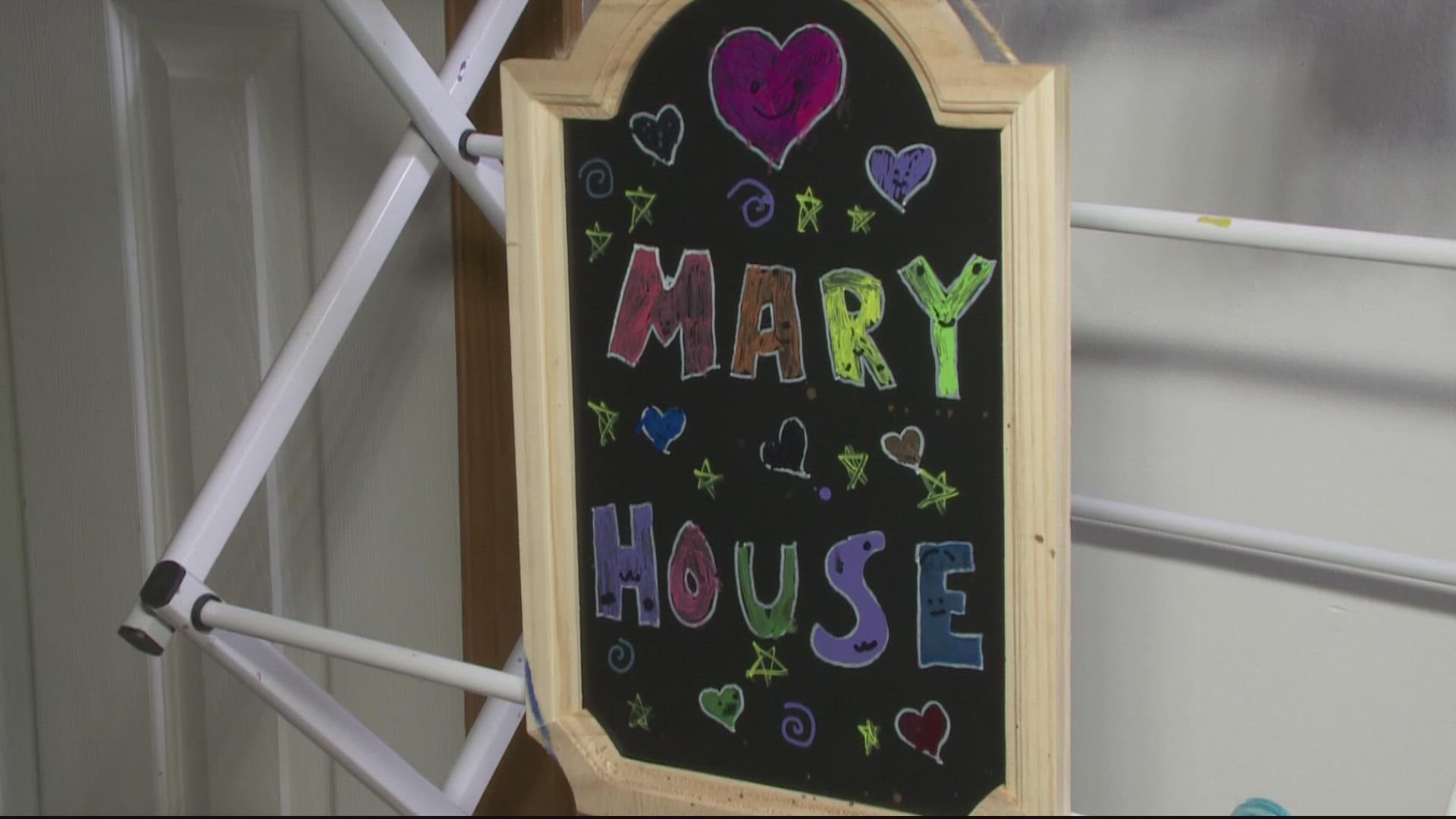WASHINGTON — As we talk about food insecurity this month, we want to focus in on a group routinely forgotten in the area: Immigrants and refugees. According to DC Hunger Solutions, 42% of immigrants living in the District go hungry.
One group has made it their mission to deliver help to the new resident of the country that live in D.C.
Inside Mary House headquarters it looks like a daycare with toys and books spread around. But you’ll find they care for more than just kids they look after the whole family.
“We provide services to immigrant and refugee families,” co-founder Sharon Murphy explained.
Murphy and her husband have helmed Mary House for more than 30 years. It's brought them into the lives of people like Zulma Barrera.
“When we met Miss Sharon, she saw us as a new family like a light star,” Barrera smiled. “She gave us the opportunity for to be here and be a part of this amazing program.”
Zulma came to D.C. from El Salvador. As she grew her family, they fell into the same problems so many other immigrants experience: Barriers to language, housing and food.
“When you come here as immigrants, you feel that you don't belong here,” she said. “Even though we joined my family or my husband’s family, we just didn’t get the feeling we belonged.”
That’s where Mary House came in. Sharon and her husband help to find or provide housing, language classes, and -- perhaps the core of the mission -- food.
“Food really is a way of telling underserved and at-risk communities, ‘You are not forgotten,’” Sharon said.
Sharon gave us a tour of the Mary House food pantry. It is more of a personal grocery store for families.
They can get produce, frozen foods, cans -- you name it.
“Up until COVID, that was a twice a month program,” Sharon said.
In the pandemic, everything changed. The economics of COVID hit immigrant families particularly hard.
“Everyone that was part of the community that Mary House responds to lost their jobs,” Sharon explained. “So, we started delivering food.”
Twice a week they delivered food to the more than 75 families they served, including Zulma’s family.
“It was very helpful to our kids because they felt that we are not alone,” Zulma said. “We are part of Mary House and they will not leave us alone.”
Food is only part of Mary House’s work. They provide housing for 50 immigrant and refugees families. They help with legal services and a variety of other programs.
But as Sharon will tell you, food is important because it means more than just filling empty stomachs.
“It's a way of building a bridge between people and communities of people and saying to them, ‘You're not forgotten,’” a common theme Sharon repeats often.
That has been the life goal of Mary House. To create a place where immigrant families always have a seat at the table.

